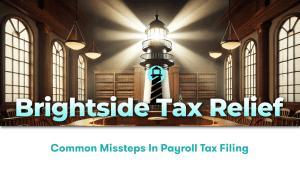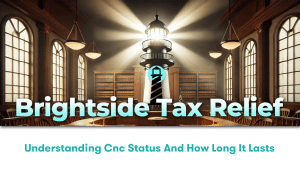[page-generator-pro-claude-ai topic=”you will write the first part of a blog article titled: Understanding the Trust Fund Recovery Penalty for Employers, with the focus keyword being Trust Fund Recovery Penalty … this article is for a blog on the website for Brightside Tax Relief LLC, a tax relief company servicing nationwide, and why they are the best choice pertaining to Understanding the Trust Fund Recovery Penalty for Employers.. wrap the the section headings in h3. give me 3 sections, each section should have at least 3 paragraphs and make the content smart, witty, and informative. do not include a conclusion paragraph or final thoughts, only relevant information. make sure its at least 1500 words with a maximum of 1500 words. DO NOT USE NUMBERED LISTS AND KEEP ALL THE CONTENT SEO-FRIENDLY. The first 3 sections will be: Understanding the Trust Fund Recovery Penalty for Employers Spotlight, Detailed Understanding the Trust Fund Recovery Penalty for Employers Breakdown, and Local Advantage of choosing Brightside Tax Relief LLC. Make these section headings relevant, witty.. you dont have to use the section headings i gave you, just use them as context..after every section create a long sentence highlighting the key takeaway of the section and wrap the key takeaway in a div with id key_takeaway. also you keep outputting 3 hashtags before each header title, dont do any formatting except for the H2 and H3… do not include the title of the article” content_type=”freeform” language=”en” temperature=”1″ top_p=”1″ presence_penalty=”0″ frequency_penalty=”0″]
[page-generator-pro-claude-ai topic=”you will write the second part of a blog article titled: Understanding the Trust Fund Recovery Penalty for Employers… this article is for a blog on the website for Brightside Tax Relief LLC, a tax relief company servicing nationwide, and why they are the best choice pertaining to Understanding the Trust Fund Recovery Penalty for Employers, with the focus keyword being Trust Fund Recovery Penalty .. wrap the section headings in h3. give me 3 sections, each section should have at least 3 paragraphs and make the content smart, witty, and informative. do not include a conclusion paragraph or final thoughts, only relevant information. make sure its at least 1500 words with a maximum of 2500 words. DO NOT USE NUMBERED LISTS AND KEEP ALL THE CONTENT SEO-FRIENDLY. The sections will be: Criteria for selecting Brightside Tax Relief LLC when its comes to Understanding the Trust Fund Recovery Penalty for Employers, Key Questions/FAQs, and Next Steps for moving forward with Brightside Tax Relief LLC in relation to Understanding the Trust Fund Recovery Penalty for Employers.. their phone number is 844-638-0800, you can add this and make it clickable…. Make these section headings relevant, witty. you dont have to use the section headings i gave you, just use them as context. after every section create a long sentence highlighting the key takeaway of the section and wrap the key takeaway in a div with id key_takeaway.also you keep outputting 3 hashtags before each header title, dont do any formatting except for the H2 and H3..do not include the title of the article” content_type=”freeform” language=”en” temperature=”1″ top_p=”1″ presence_penalty=”0″ frequency_penalty=”0″]




